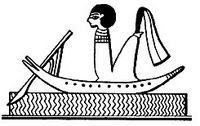David Elliott blogs
"Reinventing the Ego" in his continuation of the Florida book group's look at Thomas Moore's
Writing in the Sand: Jesus and the Soul of the Gospels. Elliott shares, "Moore studies closely the prayers of Jesus that mention Father and understands the father aspect as a "quality of life, the element that makes of you a story and a personality. It is the procreative factor, a force that can be felt in ordinary situations as generating your existence." (p.112) In earlier books Thomas Moore speaks of the soul, that which is your participation in creation (evolution), that which is both in you and in everything."
Elliott descibes members' reactions to the readings and their personal stories. He concludes, "As we were leaving Jim (overjoyed at Mark’s story) quietly added "you mean reading these books is supposed to change you?"
Elliott also considers,
"When pushed about the meaning of the book title Writing in the Sand, one perspective is that moments when the healthy, self-possessed ego is both aware of deep emotions and consenting to live according to "the will of the Father" are exactly that, moments. Each moment in our lives is a call to new decision and it passes. Just as evolution says that each cell in our body is recycled every 7 years or so, our lives are not filled with essence that is stable and forever. Terms like mother, father, son, working, retired, student don’t describe us so well. More accurate are our walks in the garden, the people we honor and the healing we perform before the writing in the sand disappears.
Finally, reinventing the ego or living in the tension of spiritual vision and human emotions cannot be left as an individual experience. “The word agape appears over 300 times in the New Testament, such is its importance. In context, it connotes a communal feeling of connection, which Paul spells out as being selfless and which is the opposite of narcissism." (p. 120)
Elliott invites all blog readers to share their reactions and responses.
Labels: Thomas Moore, Writing in the Sand







